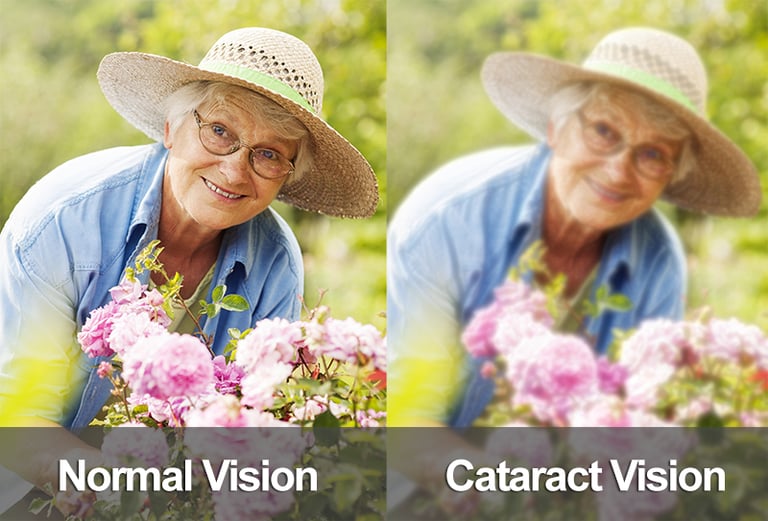Cataracts and How It Affects Your Vision
1/29/20242 min read


Have you ever heard of cataracts? If not, don't worry, you're not alone. Cataracts are a common eye condition that affects millions of people worldwide. In this article, we'll explore what cataracts are, how they can impact your vision, and what you can do about them.
Understanding Cataracts
Cataracts occur when the lens of your eye becomes cloudy, leading to a decrease in vision. This clouding is usually a result of aging, but it can also be caused by other factors such as genetics, diabetes, smoking, or prolonged exposure to sunlight.
Symptoms of Cataracts
So, how do you know if you have cataracts? Here are some common symptoms to watch out for:
Blurred vision: You may notice that your vision is becoming increasingly hazy or cloudy.
Sensitivity to light: Bright lights may become uncomfortable or glaring.
Difficulty seeing at night: Nighttime vision may be particularly challenging.
Colors appear faded: You may find it harder to distinguish between different colors.
Double vision: You might see double images in one eye.
If you're experiencing any of these symptoms, it's important to consult an eye care professional for a proper diagnosis.
Treatment Options
The good news is that cataracts can be treated effectively, restoring clear vision and improving your quality of life. Here are some treatment options:
1. Prescription Glasses or Contact Lenses
In the early stages of cataracts, your eye doctor may prescribe glasses or contact lenses to help improve your vision. These corrective lenses can compensate for the cloudiness caused by cataracts.
2. Surgery
If your cataracts progress to a point where they significantly impair your vision and daily activities, your optometrist may recommend cataract surgery. During this procedure, the cloudy lens is removed and replaced with an artificial lens, known as an intraocular lens (IOL). Cataract surgery is a safe and common procedure that has a high success rate.
3. Lifestyle Changes
While cataracts cannot be prevented, certain lifestyle changes can help slow down their progression. Protecting your eyes from harmful UV rays by wearing sunglasses and a wide-brimmed hat, quitting smoking, managing diabetes if you have it, and eating a healthy diet rich in fruits and vegetables can all contribute to maintaining good eye health. With our lifestyle so connected with electronic devices wearing glasses that can protect you from the Blue Light emitted can also reduce the progression of cataracts.
Conclusion
Cataracts may be a common eye condition, but they don't have to hinder your vision indefinitely. With the right treatment options and lifestyle changes, you can regain clear vision and continue to enjoy life to the fullest. If you suspect you may have cataracts, don't hesitate to reach out to an eye care professional for a thorough evaluation and personalized treatment plan.
Address
Deja Vu Optics 157 Water St, Campbellton, NB, E3N 3L4
Contacts
Phone: 506-753-6000
Fax: 506-753-6040
Email: dvooffice@dejavuoptics.com




1 Hr Service
In Office Lab
Large Stock of Single Vision Lenses for Distance and Reading
